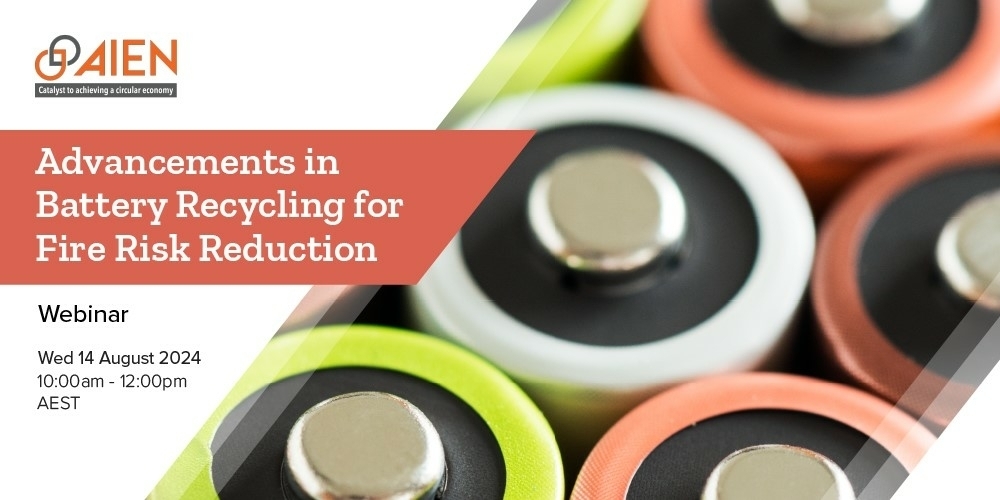Advancements in Battery Recycling for Fire Risk Reduction
10.07.2024The use of batteries is increasing throughout our economy to help in the energy transition. Batteries of difference sizes and chemistries are being used in just about every aspect of our lives – in household appliances, toys, portable tools, domestic and commercial power storage, electric vehicles, mobile industrial plant and even heavy transport vehicles.
 © AIEN
© AIEN
Australia is rapidly adopting these new applications for batteries, and we have some of the world’s largest deposits of critical minerals to support battery manufacturing - yet we have little recycling capability to recover the critical minerals in these batteries to support a circular economy. Whilst the recovery of used lead acid batteries is high, it is estimated that 24 300 t of batteries still end up in landfill in year. For some battery types, such as lithium-ion, the recycling rates are extremely low, at an estimated 3 % (Langdon, R, Dominish, E., & Lara, H. (2023). B-cycle Benchmarking Program: Market Analysis & Fate Mapping, and Life Cycle Analysis. Sydney: Institute for Sustainable Futures. Internet publication: https://bcycle.com.au/wp-content/uploads/2023/05/Battery-MA-Report-FINAL-20230927.pdf).
Collection and recycling of batteries at end of life is needed to avoid the disposal of batteries to the general waste stream. The presence of high-energy storage batteries in waste and recycling streams collected at the household level have led to a spate of fires in collection vehicles, material processing facilities and at landfills.
This webinar will explore the issues surrounding the problems of incorrect disposal of batteries to the waste stream, and new facilities that are being constructed that will help to collect, sort and process batteries – helping to divert them from the waste stream and ensure they are recycled to support the circular economy.
Featured speakers include:
Click here for more information about the event and to download the draft program

